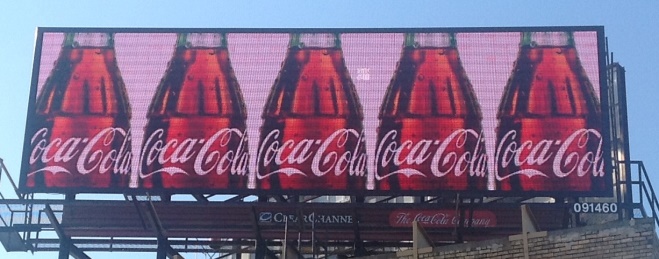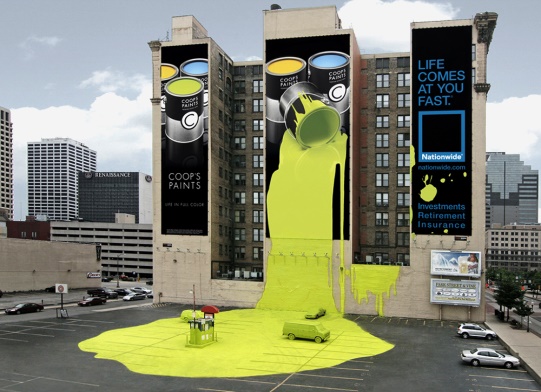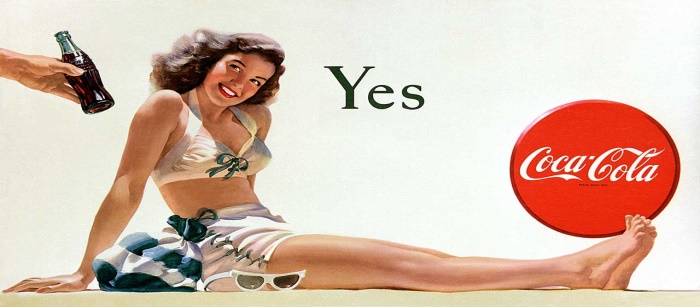An advertisement can be called good if it looks or sounds unusual enough to be retained in people’s memory for some time. Trying to make an advertisement as effective as possible, marketers use various ways to attract the attention of the consumer. Most are based on the peculiarities of visual perception. Having certain knowledge about the nature of perception, it is not difficult to generate an advertisement that will carry out its work and generate profit for the company.
Various stimuli are used to generate an attractive advertisement. One of the factors that are exploited the most is the size of objects shown in the advertisement. Larger visual stimuli are more likely to be noticed, whereas smaller ones tend to remain imperceptible to the consumer, and this is why marketers often experiment with the size of objects. Creative thinking on the part of specialists who developed concepts for advertising the products of BMW and Mcdonald’s helped them to design the advertisements that burst upon the eye of the consumer and shape the desire to buy these products.


Another important stimulus factor that is used to attract attention is intensity, which involves the repetition of a stimulus that occurs throughout the advertisement. As they shift the focus of their attention, consumers perceive the same information a few times and as a result, the information is more likely to be remembered. The repetition of a visual stimulus in an advertisement can be seen very often as it remains a trump card used in a competition on a global scale. The more space is covered with the logo of your company, the more product is going to sell. The following examples of Coca-Cola and iPod advertisements illustrate the right use of intensity in a visual stimulus.


Our eyes tend to notice objects that have a bright color or a significant contrast against a background, and this factor also serves as one of the means of attracting the consumer’s attention. This method is very helpful for marketers, as the use of bright color gives them the possibility to highlight any information that they want to make relevant to the consumer. Optika Arena and Coop’s Paints use strong contrast and bright colors to make their advertisements come to the forefront; it works.


The use of attractive visuals seems to be one of the most popular ways of attracting consumers’ attention but at the same time, it presents a serious ethical problem. Modern advertisements exploit human bodies to make consumers fix their eyes on a billboard, having noticed the naked body on it. Bodies of the women pictured become objects used to help to sell any product, and this remains one of the greatest issues in the advertising industry.


Although many marketers generate advertisements applying the “the more the better” principle, the opposite approach is also very effective for attracting the target audience. The plain design of an advertisement involves isolation of the relevant object and creating a contrast between this object and a background. Oral-B and KitKat use this stimulus to direct all the attention to the product itself.


As we can see, the use of various types of visual stimulus can make an advertisement different from many others and marketers never miss an opportunity to suck an advantage out of the peculiarities of our visual perception.
Subliminal Messages in the Advertisements
There are many ways to increase our purchasing power. Messages that we get from advertisements can sometimes bypass our consciousness; such messages are called subliminal. The remarkable thing is that they are presented so fast that they remain unnoticed by the consumer. It must be said that many researchers do not agree that it works. One possible reason for such an opinion may be their connection to famous advertising specialists who would like to keep their methods of work a secret.
I guess that I have stumbled upon subliminal messages in advertisements many times and the majority of them were unnoticed. Nevertheless, sometimes I managed to figure out the reason why I made the purchase. Once I bought an acne treatment product but then realized that I should have bought a different one. Trying to think about the reason for this impulse purchase, I found its advertisement and watched it again. There were two images of people; one image depicted people with skin problems and the other depicted the same people with clear skin. Besides the difference in skin condition, they had different lifestyles: the former was shown sitting at home and being depressed and the latter was going out with friends and seemed to possess popularity. The message that people cannot live a happy life until their skin is perfect made me purchase a product that was not effective.
I also remember an advertisement from a famous tea production company. I did not like that taste but I purchased it, as there was something that attracted me. Watching the advertisement again, I understood that the impulse for my purchase was caused by the music. It sounded almost like a song that I had loved as a child. In my mind, that product became connected to the memories of my happy childhood, and this is why that impulse buy took place.